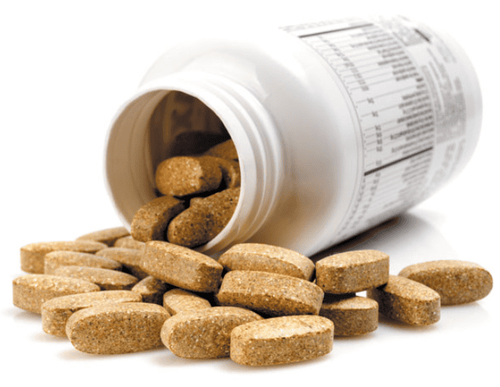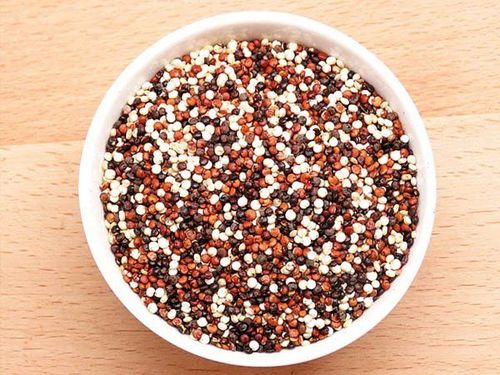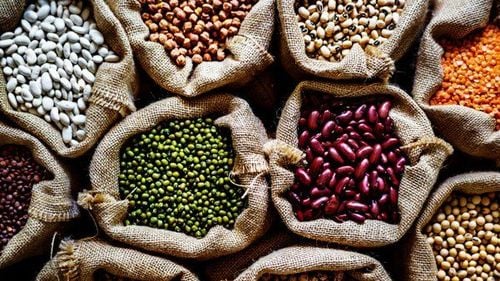This is an automatically translated article.
Whole grains or whole grains have been part of the human diet for tens of thousands of years. Despite mounting evidence that eating more refined grains is linked to health problems like obesity and inflammation, eating whole grains is a different story. In fact, eating whole grains has various benefits, the most prominent of which are a reduced risk of diabetes, heart disease, and hypertension.
1. What are whole grains?
Grains are the seeds of grass-like plants. Some common grains are corn, rice, and wheat. In addition, certain seeds of non-grass plants, or pseudo-seeds, are also considered whole grains, including buckwheat, quinoa, and amaranth.
Whole grains, also known as whole grains, are made up of three parts:
Bran: This is the hard, outer structure, commonly known as the crust. Bran is rich in fiber, minerals and antioxidants. Endosperm: The middle layer of the grain grain, mainly made up of carbs. Germ: This structure corresponds to the innermost layer, which contains many vitamins and minerals, proteins and plant compounds. Whole grains can be crushed or broken, as long as the three-part ratio remains the same, they are all called whole grains.
Refined grains have the germ and bran removed, leaving only the endosperm. Although products made from refined grains are often fortified with some vitamins and minerals, they are still not a healthy or truly nutritious food when compared to whole grains.
Popular whole grains include: oatmeal, popcorn, quinoa, brown rice, and rye. Products made from these foods are considered whole grains. These include several types of bread, pasta, and breakfast cereals.
When buying processed whole grain products, take a moment to read the ingredients list to be sure they are actually made from whole grains, not a whole grain blend and refined grains. Also, watch out for the sugar content, especially in the case of breakfast cereals, which are often high in sugar. It's also important to note that seeing the phrase "whole grain" on the package doesn't mean it's a healthy product.
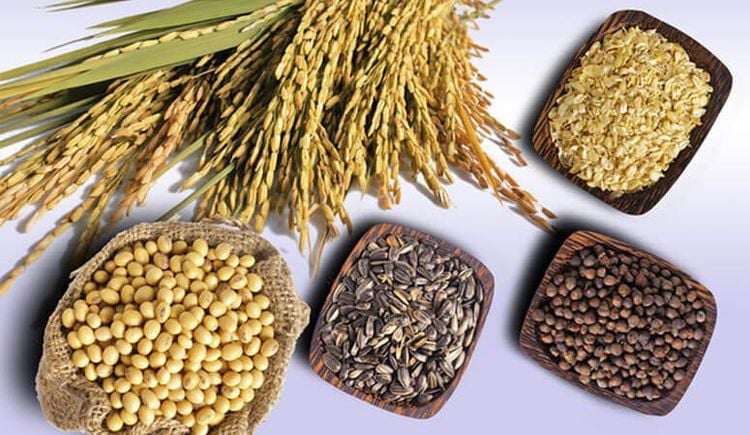
Ngũ cốc đem lại nhiều lợi ích cho sức khỏe
2. Nutritional value of whole grains
Grains are a great source of many important nutrients, including complex carbohydrates, fiber, several B vitamins (thiamin, riboflavin, niacin and folate) and minerals (iron, magnesium, and selenium).Fiber from whole grains can help lower blood cholesterol levels and may reduce your risk of heart disease, obesity, and type 2 diabetes. Fiber is important for intestinal function because it helps relieve constipation and other conditions related to intestinal diverticula. Foods with fiber like whole grains help keep you feeling full for longer with fewer calories, so whole grains are also a reasonable choice for a diet.
B vitamins like thiamin, riboflavin and niacin play an important role in metabolism, they help the body release energy from proteins, fats and carbohydrates. B vitamins are also essential for a healthy nervous system. Many refined grains are fortified with these B vitamins. Folate (folic acid), another B vitamin, helps the body form red blood cells. Women of childbearing age should get enough folate from food and 400 mcg of synthetic folic acid from supplements or other foods. This reduces the risk of neural tube defects and spina bifida during fetal development.
See also: Folic acid (Vitamin B9): Should be taken before pregnancy
Iron is used to transport oxygen in the blood. Many girls and women of childbearing age have iron deficiency anemia. These subjects should eat foods high in heme iron (meat) or eat other iron-containing foods along with foods rich in vitamin C, which may improve absorption of non-heme iron. As a result, refined grain products are also often added to the diet with non-heme iron.
Whole grains are a good source of magnesium and selenium. Magnesium is a mineral used to form bone structure and release energy from muscles. Selenium protects cells from oxidation. It is also important for a healthy immune system.
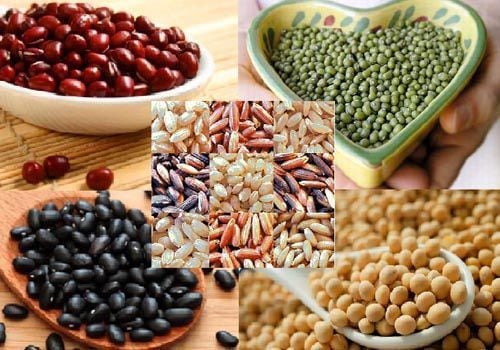
Ngũ cốc có hàm lượng chất xơ cao
3. Are whole grains good?
Eating whole grains regularly forms part of a healthy diet, which may reduce the risk of cardiovascular diseases.
Consuming whole grain foods that contain fiber, as part of a healthy daily diet, can support a healthy digestive system. Besides, eating whole grains can help control weight effectively.
Eating whole grain products before and during pregnancy boosts the body's folate to help prevent neural tube defects in the fetus.
Whole grains are very good for human health, you should add to your daily diet. However, you should not overdo it, but need to consider the appropriate dosage.
Please dial HOTLINE for more information or register for an appointment HERE. Download MyVinmec app to make appointments faster and to manage your bookings easily.
References: healthline.com, webmd.com, choosemyplate.gov




